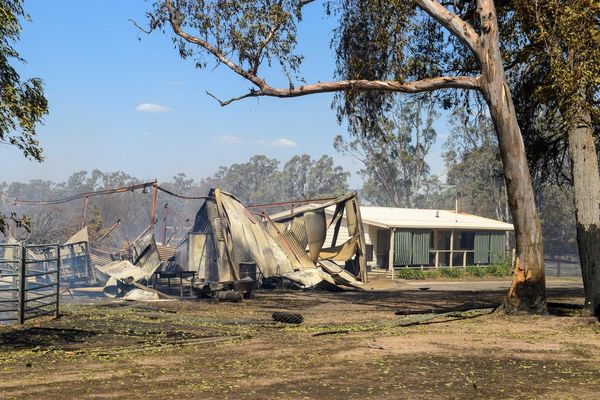
If members of the shadow frontbench seek inspiration on how to differentiate their future administration from the mendacious nonentities who have run the country for the past 13 years, they could do worse than read this book. Free and Equal is a stirring call by an LSE philosopher and economist for egalitarian liberalism based on the ideas of John Rawls. The late Harvard professor wrote a book 50 years ago that saw him feted as a political thinker of the calibre of Plato, Hobbes and Mill, but, as far as I can tell, he had precisely zero impact on the real world. Maybe now his time has come.
In A Theory of Justice, Rawls invited us to imagine what a just society would look like by means of an elegant thought experiment. Suppose, Rawls suggested, that we are all behind what he calls a “veil of ignorance”, with knowledge of our talents, income and wealth, as well as our core values, temporarily erased. In this “original position”, what principles of justice would we agree to be bound by? What kind of social contract would we devise to ensure the society we lived in was a good one? Rawls argued that we would choose a set of basic liberties necessary for flourishing, including freedom of expression and of conscience, and a free choice of occupation.

On top of these we would also want some principle of fairness; and so Rawls’s “difference principle” asserts that any inequality in society can be justified only to the extent that it benefits the worst off. If, for example, the estimated £2.4m paid in bonuses to Thames Water bosses in 2021 could be shown to improve the lot of its poorest customers – perhaps by encouraging them to run it with such skill that they could cut prices and improve standards – then it would be justifiable. But the fact it was handed out despite rising bills and millions of litres of water leaking from its pipes every day suggests it wasn’t.
The insights from the original position experiment, which Rawls imagined would be so inspiring as to bind fractured societies together, are what Chandler thinks we need now, not only to make societies more equal, but to fill the moral vacuum at the heart of our politics. It is this, he argues, that “has made space for the rise of illiberal, antidemocratic populism”.
The first part of his book is a fine elucidation of Rawls’s ideas and critical responses to them, which will be familiar to most philosophy undergraduates. It is the second part, though, in which Chandler applies Rawls’s ideas to our current plight, where things get exciting. He derides Jeremy Corbyn’s 2019 manifesto as a wishlist rather than a coherent programme, but his ideas are also a wishlist, albeit underpinned by the Rawlsian conception of justice as fairness, and more committed to the continuation of market economics and capitalism than Corbyn would countenance.
That wishlist includes a universal basic income sufficient to eliminate poverty (costing about 25% of GDP) awarded to everyone irrespective of wealth, any other income, or whether they’re employed; tertiary education funded by a mix of free tuition and income-contingent loans, and a transfer of wealth to every citizen when they reach adulthood (a reform historically endorsed by the two Thomases, Paine and Piketty, and similar to Gordon Brown’s child trust fund).
I found Chandler’s suggestions inspiring, not least his call for the abolition of private schools. But surely that measure contradicts the freedom of people to spend their money as they wish? Rawls’s basic liberties, Chandler writes, are necessary preconditions to fairness and so take precedence over equality of opportunity. “But,” he argues, “the freedom to spend large amounts of money on a private education, or indeed to pass on unlimited amounts of wealth through gifts and inheritances, simply doesn’t have the same importance.”

Chandler’s programme of reforms amounts to a much-needed rebuttal of the idea that existing income and wealth distributions are unobjectionable. But it comes with an eye-watering price tag. He estimates that taxes at around 45-50% of national income would be needed (the UK tax take is currently about 33%). “Building support for higher taxes is a long-term political project,” he says with heroic understatement. Who’s going to vote for massive tax hikes? Not, cynics might retort, the “red wall” Tories who Labour needs to seduce.
In any case, as we know from economic geniuses Kwasi Kwarteng and Liz Truss, low taxes stimulate growth and high ones scupper it. Not so, counters Chandler: Belgium, Denmark and Finland have experienced similar long-run economic growth to the US since the 1960s, despite having an overall tax rate that is 10-15% higher. Just possibly, voters would pay more to create something that has seemed out of reach since at least 1979, the year Margaret Thatcher was elected to enact an anti-state platform predicated on free market ideology, rather than anything John Rawls would recognise as just or fair.
If we are really serious about creating a free and equal society, at least some of the ideas Chandler suggests are necessary. Whether the next Labour government has the bottle to put them into practice is another matter.
• Free and Equal: What Would a Fair Society Look Like? by Daniel Chandler is published by Allen Lane (£25). To support the Guardian and Observer order your copy at guardianbookshop.com. Delivery charges may apply.







